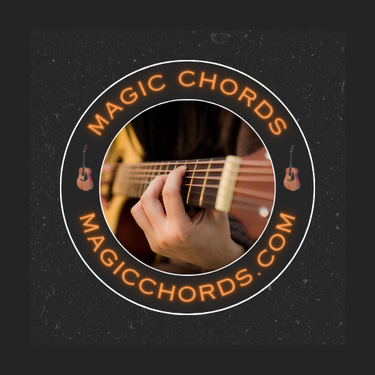
Stuck on Guitar? Beat the Practice Plateau Fast!
Struggling to improve your guitar skills? Discover proven tips to beat the practice plateau fast, stay motivated, and make real progress every time you play !!!
magicchords.com
10/28/2025
Understanding the Practice Plateau
A practice plateau is a phenomenon experienced by many musicians, including guitar players, where noticeable improvement in skill temporarily stagnates despite dedicated practice. This stage can be disheartening, as individuals may feel they are putting in substantial effort without corresponding gains in their playing abilities. The reasons behind hitting a plateau are varied, often stemming from both psychological and physical factors.
Psychologically, the concept of a practice plateau can lead to feelings of frustration and self-doubt. As guitarists strive for growth, they may become acutely aware of their limitations, which can compound feelings of inadequacy. Understanding that this experience is entirely normal is crucial for maintaining motivation. Many players encounter a similar experience as they progress through their learning journey; it signifies that they are pushing their boundaries and engaging with increasingly complex material, often a sign of growth rather than failure.
Physically, practice plateaus can be attributed to the body's adaptation processes. When practicing, the muscles, neural pathways, and cognitive faculties all work together to refine skills. Eventually, the body reaches a point of adaptation, where further improvement becomes challenging without adjusting practice routines. This plateau serves as a natural response, indicating that a different approach might be necessary for continued progression.
Being stuck on a practice plateau is key to understanding how growth occurs over time. Resilience and a willingness to adjust one's approach to practice can help clear these barriers. For example, diversifying practice techniques, setting smaller transition goals, or seeking constructive feedback can reinvigorate a player's development. Remember, a plateau is not a dead end; instead, it can be seen as part of a guitarist's ongoing journey towards mastery.
Identifying Your Goals
Setting specific, measurable, achievable, relevant, and time-bound (SMART) goals is crucial for any guitarist looking to advance their skills and break through practice plateaus. Each player may have different aspirations, from mastering a complex song to improving particular techniques or increasing their playing speed. Clearly defined goals not only provide direction but also enhance motivation by offering tangible benchmarks for progress.
When identifying your goals, consider what aspect of your guitar playing you wish to develop. For instance, if you enjoy playing a particular genre, setting a goal to learn a specific song within a defined time frame can be particularly motivating. Ensuring that the goal is measurable—such as completing the song within two weeks—allows you to track your progress and maintain focus. Moreover, breaking larger goals into smaller, manageable tasks can simplify the learning process and make it less overwhelming.
Additionally, it is essential to assess the relevance of your goals to your overall musical journey. Ask yourself whether the objectives align with your interests and long-term aspirations as a guitarist. A well-rounded approach could involve setting short-term goals, such as practicing a new scale on a daily basis, alongside long-term aspirations, like performing in front of an audience. The combination of these objectives creates a purposeful practice schedule that nourishes growth.
Finally, factor in the time constraints that may influence your practice routine. Setting realistic deadlines ensures that goals are challenging yet attainable, providing a sense of accomplishment once achieved. By committing to your goals and reviewing them regularly, you can maintain motivation and continuously push past your current limitations, effectively overcoming the notorious practice plateau.
Incorporating Variety in Practice
Many guitar players experience a practice plateau, where progress seems stagnated and motivation dwindles. One effective method to counteract this issue is to incorporate variety into practice routines. Mixing up practice sessions can reignite enthusiasm and facilitate skill development. By introducing new genres, players can broaden their musical horizons. Exploring styles such as jazz, blues, rock, or classical not only enhances versatility but also challenges technique and expression.
Additionally, practicing different techniques can provide a fresh perspective. Guitarists often rely on familiar scales or riffs, which may lead to boredom. By integrating techniques such as fingerpicking, sweep picking, or hybrid picking, players can sharpen their skills and discover new sounds. Additionally, focusing on elements like dynamics, phrasing, and articulation can enhance overall musicianship and keep practice sessions engaging.
Improvisation is another splendid avenue to explore. Rather than adhering strictly to structured exercises or pieces, allowing oneself to experiment and create can lead to unexpected discoveries. This freedom fosters creativity and may result in unique compositions or solos. To further challenge oneself, setting specific goals or targets, such as learning a new song each week or mastering a challenging solo, can maintain motivation and serve to measure progress accurately.
Seeking challenges can effectively push one’s boundaries. Engaging with more advanced material or collaborating with fellow musicians can provide invaluable feedback and motivation. Participating in jam sessions, online forums, or local music events can open up new avenues for learning and growth. In summary, by diversifying practice sessions through different genres, techniques, improvisation, and by embracing challenges, guitarists can break free from monotony, rediscover their passion, and effectively conquer the practice plateau.
Utilizing Technology and Resources
In today’s digital age, aspiring guitarists can significantly benefit from a plethora of technological tools and resources that facilitate their learning process. Among the most effective are guitar apps, which can assist players in various ways, from tuning their instruments to providing interactive lessons tailored to individual skill levels. These apps often feature rich libraries of songs, exercises, and feedback mechanisms that can help guitarists track their progress over time, making it easier to identify areas needing improvement.
Online lessons represent another promising avenue for breaking through practice plateaus. Many platforms offer structured courses led by experienced instructors, covering topics from basic chords to advanced techniques. This accessibility allows guitarists to learn at their own pace, enabling them to revisit challenging segments as needed. Additionally, these lessons often include visual aids and play-along tracks that can enhance understanding and retention drastically.
Instructional videos available on platforms like YouTube also offer a wealth of knowledge catering to a wide array of styles and skill levels. These videos often break down songs or techniques step-by-step, which can be particularly helpful for visual learners. Furthermore, these resources allow guitarists to explore diverse musical genres, exposing them to a broader range of playing styles and techniques that can reignite motivation and creativity.
Recording practice sessions is an invaluable practice for self-assessment. Utilizing smartphones or digital recording devices allows guitarists to listen back to their performance, providing insight into areas that may require more attention. This method fosters accountability and encourages a more focused practice regimen. Ultimately, integrating technology and leveraging the vast resources available online can create new learning opportunities, motivate players, and help them conquer their practice plateaus effectively.
Establishing a Routine that Works for You
Creating a personalized practice routine is crucial for any guitarist, particularly when striving to overcome a practice plateau. A well-structured routine should reflect an individual's lifestyle, learning pace, and personal goals. Begin by assessing your available time for practice during the week. This will help you identify manageable slots to incorporate guitar sessions without feeling overwhelmed. Setting realistic expectations regarding the duration and frequency of practice is essential; even short, focused sessions can yield significant improvements.
Consistency plays a vital role in progressing on the guitar. Aim to practice regularly, ideally on a daily basis, as this helps reinforce muscle memory and embed new skills. It is advisable to break practice sessions into shorter blocks, for example, 30-45 minutes, allowing time for focused practice on various aspects, such as scales, chords, or songs. This focused approach not only maximizes the efficiency of your practice but also keeps you engaged, reducing the likelihood of burnout.
Incorporating breaks into your routine is equally important. These breaks serve to refresh your mind and hands, preventing fatigue and sustaining motivation throughout your practice sessions. After every 20-30 minutes of practice, consider taking a short 5-10 minute pause. During these breaks, step away from the guitar, stretch, or hydrate to rejuvenate yourself, ensuring you return to your practice with renewed focus and energy.
Additionally, it is beneficial to vary the content of your practice sessions. Transition between genres, techniques, or goals to maintain your interest and challenge yourself effectively. This variability not only enhances your skill set but also keeps the experience enjoyable over time. Ultimately, establishing a routine that harmonizes with your personal commitments while nurturing your passion for the guitar will empower you to progress steadily without compromising your enjoyment of the instrument.
Seeking Feedback and Community Support
Connecting with other musicians is an essential aspect of overcoming a practice plateau when learning the guitar. Engaging through local clubs, online communities, or forums offers an invaluable opportunity to share experiences and techniques. These platforms not only facilitate networking but also provide a space where musicians can exchange constructive feedback and ideas, which can significantly enhance one’s playing ability. By receiving input from peers or instructors, guitarists can gain new perspectives on their skills, leading to breakthroughs in routine practices.
Participating in a community fosters a sense of accountability, making it easier to stay committed to personal goals. When individuals share their progress with fellow musicians, they are more likely to maintain consistent practice schedules and push beyond their comfort zones. Additionally, the emotional support provided by a community can be pivotal in overcoming feelings of frustration or stagnation. Musicians often experience similar challenges and sharing struggles can lead to valuable solutions that may have gone unnoticed when practicing alone.
Engaging with a community can inspire creativity and a renewed enthusiasm for playing the guitar. Learning from others can introduce new techniques, styles, and genres that may not have been previously considered. Moreover, attending local jam sessions or workshops can further enrich a guitarist’s experience, enabling them to apply newly acquired skills in real-time settings. Ultimately, seeking feedback and connecting with a community of musicians can break the monotony of practice and encourage more dynamic growth, positively influencing performance and enjoyment of the instrument.
Mindset Shift: Embracing the Journey
In the pursuit of mastering the guitar, many players encounter a myriad of challenges that can lead to feelings of stagnation or frustration. This is often referred to as the practice plateau. However, adopting a growth mindset can significantly alter this experience, allowing guitarists to embrace their musical journey rather than merely fixating on their end goals. A growth mindset emphasizes the belief that abilities and intelligence can be developed through dedication and hard work. Understanding that improvement takes time and that mistakes are part of the learning process is vital for any musician.
Patience is crucial in this context. Guitarists who understand that progress may not always be linear are better equipped to navigate the ups and downs of their journey. Celebrating small victories, such as mastering a new chord or successfully executing a difficult riff, can provide motivation and reinforce the relationship with the guitar. By shifting focus from the final destination to the learning process itself, players can develop a deeper appreciation for their craft. Rather than only aiming for significant milestones, players should recognize and celebrate incremental improvements that contribute to their growth over time.
Persistence is a valuable trait that complements this mindset shift. A guitarist may not see immediate results or may struggle with certain techniques, but continued practice and commitment can lead to breakthroughs. It is essential to understand that every musician encounters hurdles; the key is to approach these challenges with resilience and determination. In doing so, guitarists foster an environment where the joy of learning transcends the frustration of occasional plateaus. Emphasizing the journey rather than just the end result not only enhances musical skills but also nurtures a lifelong passion for playing the guitar.


